The Miniature Dachshund, affectionately known as the Doxie or Sausage Dog, is a beloved breed that has earned its place as a popular family companion. Known for their loyal and playful nature, these dogs are small in size but big on personality. They were originally bred for hunting small game, such as rabbits and badgers, making them courageous and alert. With their long, low bodies and distinctive appearance, they are recognized for their intelligence and keen instincts. Whether as a watchdog or simply a loving family pet, Mini Dachshunds are cherished for their strong attachment to their owners. How Big Do Mini Dachshunds Get?Detailed Version
Table of Contents
Despite their small stature, Miniature Dachshunds have a lively and independent spirit. They thrive in environments where they receive attention and affection from their families. They are especially devoted to their owners and will form strong, lasting bonds with those who care for them. As an adaptable breed, they fit well into both apartments and larger homes, making them a great choice for a variety of living situations. Their bravery and spirited personality ensure that they stand out in any household, becoming true companions for those who understand their unique needs.
Breed Overview
| Characteristic | Details |
|---|---|
| Size | Small |
| Weight | Up to 7kg |
| Height | 6 to 8 inches |
| Coat Types | Smooth, Wire-haired, Long-haired |
| Lifespan | 12 to 15 years |
| Temperament | Loyal, Independent, Playful, Brave |
| Exercise Needs | 50 minutes daily |
| Training | Stubborn but intelligent |
| Health Issues | IVDD, obesity, dental issues |
| Best for | Families, Singles, Elderly |
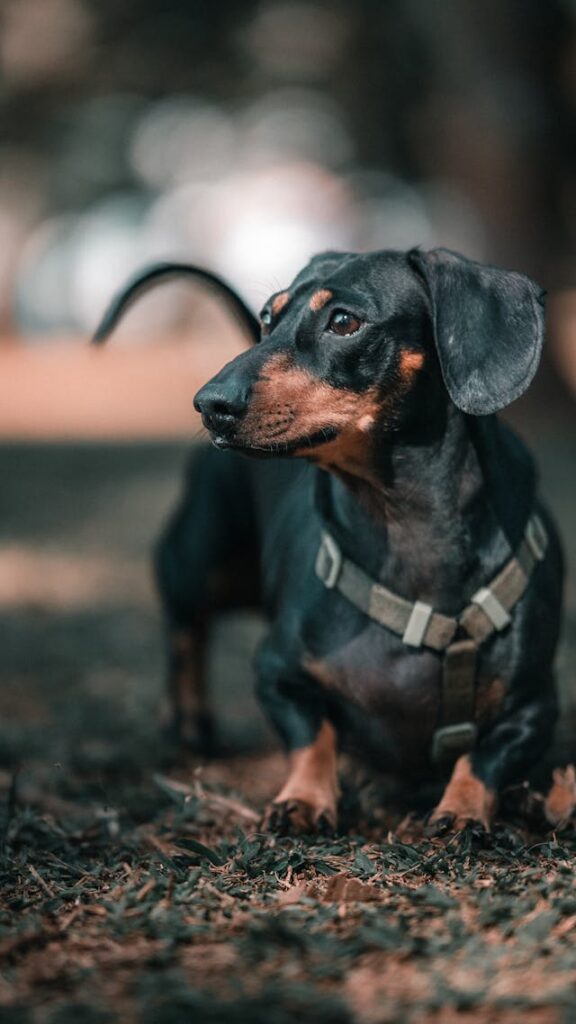
The Miniature Dachshund is a small breed but mighty in character. Its long body, short legs, and playful demeanor make it easy to recognize. Despite being known for their stubborn nature, these dogs are surprisingly intelligent and can excel at tasks when motivated. Their affectionate disposition and devotion to their families make them ideal companions, although they can be a bit independent at times.
Though small in size, they are packed with energy and will require exercise to stay healthy and happy. Regular physical activity, including daily walks and play, is crucial to avoid any behavior issues. It’s also important to keep in mind their health needs, such as maintaining a healthy weight to avoid potential spinal issues and other health concerns that come with being a small, active breed.
Appearance
Miniature Dachshunds are instantly recognizable thanks to their long bodies, short legs, and distinctive long muzzles. These small dogs have almond-shaped eyes that give them an alert and intelligent look. Their ears are typically floppy, contributing to their charming and endearing appearance. Depending on their coat type, they may have a smooth, long-haired, or wire-haired coat, each adding to their appeal.
- Height: Typically stands at 5 to 7 inches tall.
- Weight: Generally weighs up to 7 kg when fully grown, making them a manageable size.
- Coat Types: Their coats can vary—smooth for a sleek look, long-haired for a fluffier appearance, or wire-haired for a more textured feel.
- Colors: Mini Dachshunds come in various colors such as chocolate, black, cream, red, and wheaten. They can also have distinctive markings like pie-bald, brindle, and dapple.
- Eyes: Their almond-shaped eyes are expressive and add to their inquisitive personality.
Temperament
The Mini Dachshund is known for its loyal and affectionate nature. These dogs form strong bonds with their families and are often described as being extremely devoted to their owners. Despite their small size, they possess a brave and independent streak, sometimes acting bolder than expected. This can make them excellent watchdogs, alerting their owners to any potential dangers or changes in their environment.
However, their stubborn tendencies can make training a bit challenging. They are intelligent but may not always be willing to listen to commands, especially when they are distracted by a scent or a potential prey item. Proper training and socialization from an early age can help mitigate this, allowing them to become well-behaved and affectionate pets. Their playful nature means that they also enjoy activities such as fetch, running, and games that involve chasing, making them fun companions for all family members.
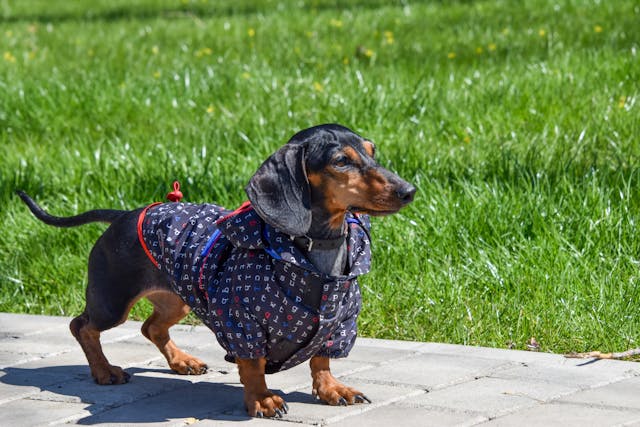
History
The Miniature Dachshund has a rich history dating back to Germany in the 15th century. Initially bred to be badger dogs, these dogs were designed to dig into burrows and hunt small prey like rabbits and badgers. Their small size, paired with powerful paws for digging, made them ideal for this purpose. Over time, the breed was refined and developed into the beloved companion animal we know today.
By the 18th century, the Mini Dachshund had gained popularity across Europe, and figures such as Queen Victoria were known to favor the breed. In the United States, the breed was officially recognized by the American Kennel Club (AKC) in 1885. Their long, low bodies and energetic personalities captured the hearts of dog lovers around the world, and they have remained a cherished family pet ever since.
Exercise
While Miniature Dachshunds are small, they are full of energy and require adequate exercise to stay healthy. It’s recommended that they receive 50 minutes of exercise daily. This can be a mix of walks and active play, such as running or engaging in scent-based activities. Since these dogs are naturally inclined to dig, setting up a secure yard where they can explore and expend energy is a great way to keep them engaged.
As puppies, their exercise needs are more limited, and playtime should be tailored to their smaller size. Puppies should be engaged for about 5 minutes of play for every month of age. As they mature, their stamina increases, and their need for physical activity grows. Without proper exercise, they may resort to unwanted behaviors such as digging or barking excessively.
Training
Training a Mini Dachshund requires patience and consistency. Although they are highly intelligent, their stubbornness can make them challenging to train. They respond best to positive reinforcement, such as treats and praise. Establishing clear rules early on will help ensure that your Mini Dachshund learns essential commands like sit, stay, and come. Regular training sessions, combined with socialization, can help them become well-behaved companions.
Because they are prone to chasing small animals due to their hunting instincts, proper leash training is a must. As they are naturally independent, it may take extra effort to reinforce good behaviors. However, once trained, they can become incredibly obedient and a joy to be around. Patience, consistency, and early training will lead to a well-behaved and affectionate Mini Dachshund.
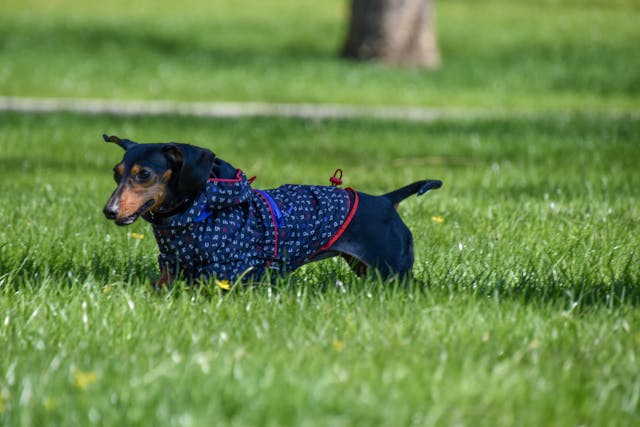
Health
The Miniature Dachshund is generally a healthy breed, but they are prone to certain health conditions, especially due to their unique body structure. Their long spine and short legs make them susceptible to Intervertebral Disc Disease (IVDD), which can cause spinal issues and pain. Preventative care, such as avoiding excessive jumping and maintaining a healthy weight, is key to minimizing these risks. Regular vet check-ups are essential to monitor for any signs of this or other conditions like patellar luxation or obesity.
Dental health is also important for Mini Dachshunds, as they can be prone to dental issues. Regular brushing, along with routine vet visits, can help prevent this. Additionally, their small size makes them more susceptible to ear infections due to the shape of their ears. It’s essential to clean their ears regularly to maintain optimal health. With proper care, a Mini Dachshund can live a happy and healthy life for up to 15 years.
Diet & Nuitrition
A balanced, nutritious diet is crucial to maintaining the overall health of a Mini Dachshund. Their small size means that portion control is important to prevent obesity, which can exacerbate spinal issues like IVDD. High-quality food that provides the necessary nutrients for muscle development and stamina should be a priority. Many pet owners opt for raw diets or specialized puppy food that offers superior nutrition.
As they grow into adults, their dietary needs will change. Choosing single-protein meals or senior dog food is important to support joint health, brain function, and digestion. It’s also vital to avoid foods that contain excessive fillers or grains, which can cause digestive problems. Regular feeding schedules and portion control will help maintain their optimal weight and prevent obesity-related health issues.
Rescue Groups
For those looking to adopt a Mini Dachshund, there are many reputable rescue groups that focus on the breed. Adopting from a rescue can be a great way to provide a loving home for a dog in need. These dogs are often well-socialized but may require some adjustment to their new environment. Many rescue organizations also provide support to help new owners acclimate their dog to their home.
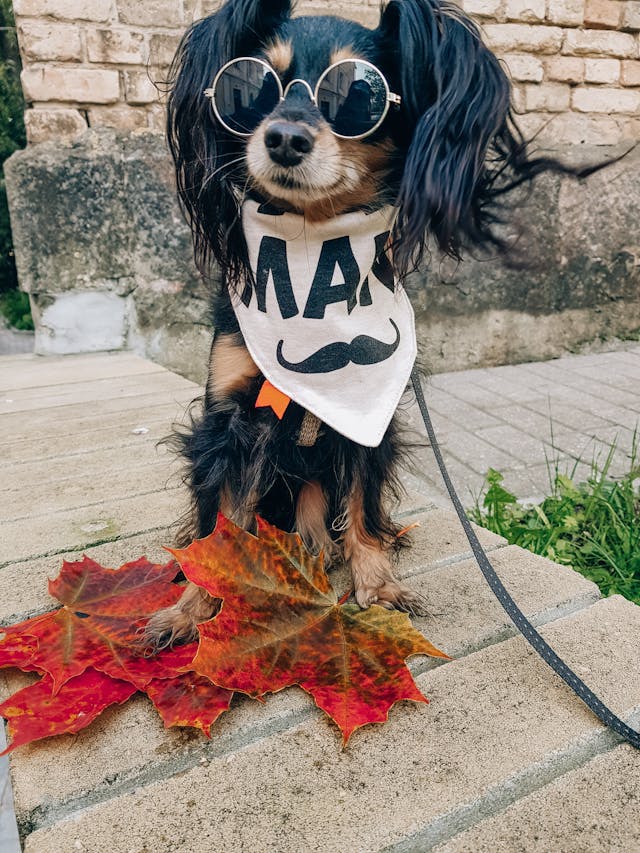
When adopting, it’s important to understand the breed’s specific needs, such as exercise and training. Some dogs in rescue may have had previous experiences with aggression or territorial behavior, so it’s essential to provide them with mental stimulation and positive reinforcement training. By adopting, you’re giving a dog a second chance at a loving home.
Recognition
The Mini Dachshund is officially recognized by the American Kennel Club (AKC) as part of the hound group. This breed was initially bred for its hunting ability, and despite its small size, it remains a strong example of a tracking and hunting dog. Its unique body shape, with a long back and short legs, makes it an easily identifiable breed. The breed’s status as an official AKC breed ensures that it continues to be recognized and respected by dog lovers worldwide.
Beyond the AKC, the breed is also recognized by various other kennel clubs around the world. Its growing popularity among families and pet lovers has made it a household name, with Mini Dachshunds being one of the most common small dog breeds in homes everywhere.
Can You Adopt a Mini Dachshund?
Adopting a Miniature Dachshund is an option through many rescue groups and shelters. These dogs are often found in need of loving homes due to their tendency to have specific care requirements, such as managing their weight and addressing spinal issues. Many individuals and families are happy to adopt these loving dogs and offer them the care and training they need to thrive.
Adopting a Mini Dachshund is a great way to give a dog a second chance. Rescue groups will often provide support, advice, and resources for new owners to help the dog transition into their new environment. Adopting a Mini Dachshund from a rescue organization can be a fulfilling experience that benefits both the dog and the owner.
Puppies
Adopting a Mini Dachshund puppy can be an exciting experience. Puppies require a lot of attention and patience, as they are still learning about the world around them. Early socialization is essential to ensure that they grow into well-adjusted adults. Puppies should also begin their training early to help prevent bad habits from forming, especially since they can be quite stubborn.
When you bring a Mini Dachshund puppy into your home, it’s important to provide them with a safe and enriching environment. This includes plenty of mental stimulation and activities that help them develop into well-rounded dogs. Early experiences with new people, animals, and situations can make a significant difference in their development.
Is a Mini Dachshund the Right Dog for Me?
A Miniature Dachshund could be the ideal companion if you’re looking for a small, loyal, and independent dog that will provide plenty of love and affection. They adapt well to both apartments and houses with yards, making them versatile for various living situations. However, their stubborn nature and strong prey drive mean they require a committed owner who can provide them with the proper training, exercise, and mental enrichment.
If you’re willing to invest time and energy into their training and care, a Mini Dachshund can make a wonderful addition to your family. They form strong bonds with their owners and can be very loving companions. Consider whether you are prepared for the exercise, training, and health care needs of this breed before bringing one into your home.
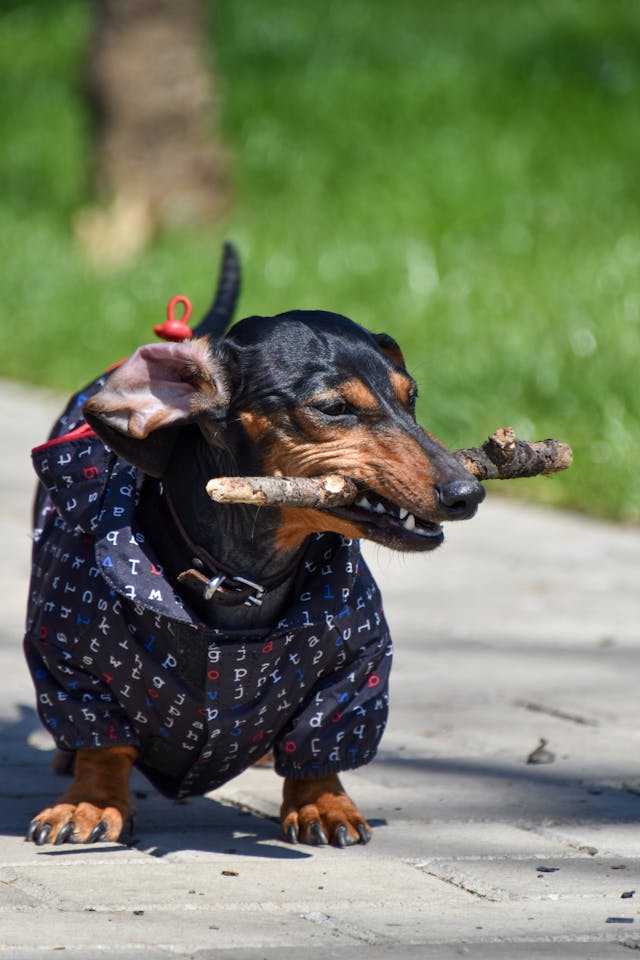
Are Mini Dachshunds Good Pets?
Yes, Mini Dachshunds make excellent pets. They are incredibly affectionate, playful, and full of energy. Their small size makes them suitable for apartments or smaller homes, and they are well-suited to live with families, singles, or even elderly individuals. Although they can be stubborn and require consistent training, they are highly intelligent and can excel when given the proper guidance.
Their devotion to their owners, combined with their watchdog instincts, makes them reliable and loyal companions. They enjoy spending time with their families, and their bravery ensures they are always alert to their surroundings. With the right care, Mini Dachshunds can be wonderful, affectionate pets that bring joy and happiness to their owners.
How Much Should a Mini Dachshund Cost?
The cost of a Miniature Dachshund can vary widely based on the breeder, the dog’s lineage, and its specific traits. Generally, a Mini Dachshund puppy can cost between $1,000 and $2,000, though prices can fluctuate. If you’re adopting, the cost is usually much lower, ranging between $200 and $400 for a rescue dog.
Keep in mind that the initial cost of purchasing a dog is just one part of the equation. You should also plan for vet visits, grooming, and food. Mini Dachshunds require proper health care, especially as they can be prone to spinal issues and other health concerns. Regular check-ups and a nutritious diet are essential to ensuring a long, healthy life for your pet.
What Are the Cons of a Miniature Dachshund?
While Mini Dachshunds make wonderful pets, there are some drawbacks to consider. Their stubborn nature can make training challenging, particularly for first-time dog owners. Their small size also makes them prone to spinal issues, which can become problematic as they age. Proper care to prevent obesity and excessive jumping is necessary to avoid exacerbating these issues.
Additionally, Mini Dachshunds are known for their barking. They tend to be quite vocal, which can be an issue for those living in apartments or areas with noise restrictions. Though their alertness and vigilance make them excellent watchdogs, their barking can be excessive without proper training and socialization.
Do Mini Dachshunds Bark a Lot?
Yes, Mini Dachshunds tend to bark a lot, especially when they sense something unusual in their environment. They are highly vocal and will often alert their owners to strangers, new sounds, or even changes in the household. While their barking can be useful for protection, it can also become a problem if not managed appropriately.
Training and socialization from a young age can help minimize excessive barking. It’s important to teach them when it’s appropriate to bark and when to stay quiet. Regular mental stimulation and providing them with enough physical activity can also reduce boredom-related barking.
Golden Retriever Feeding Chart (Adult + Puppy) In Detail
What Kind of Dogs Are Lady and the Tramp? Breed Information, Pictures
Chion Dog [Chihuahua+Papillon]: Information, Pictures, Everything
Chiweenie German Shepherd Chihuahua Mix: The Dog You Need!
